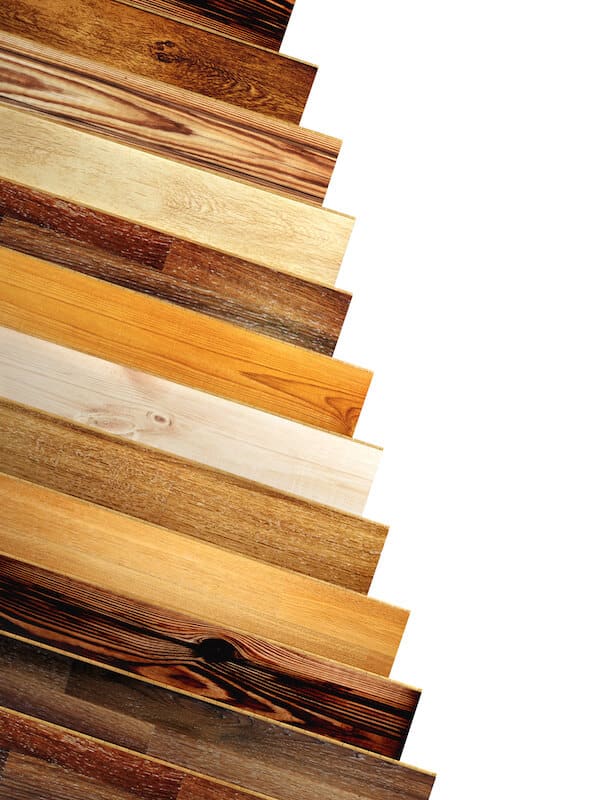What are the Different Types of Wood Flooring?
Installing new flooring is a major task, but it’s worth the effort when you choose a material that will look great with minimal maintenance for decades. Hardwood meets these requirements, along with many engineered wood products and other wood floor types. So how do you choose from so many great options, and then narrow down to a single finish for each room of the home? Comparing the various types of wood flooring will help you pick the right material for each room’s unique needs. From there you can start envisioning how different finishes and surface treatments would look in your home.
-
- Solid Hardwoods
- Engineered and Composite Wood Floor Types
- Exotic Wood Floor Types
Solid Hardwoods
Most people referring to hardwood floors are talking about solid boards from a single wood source. This category includes very hardwoods like oak and relatively softer materials like cedar, poplar, and fir. It’s up to you to verify the hardness of the specific variety of wood you choose since hardness can vary even among different types of oak or maple. Solid wood flooring is long lasting and can be resurfaced many times, but it has only the wood’s innate resistance to damage and may dent or scratch if the wood is softer.
Engineered and Composite Wood Floor Types
For greater moisture resistance or particularly strong scratch resistance, try a composite wood floor that contains binders and surface coatings for extra durability. These materials also tend to cost less than solid hardwoods, although some cost more thanks to their advanced features. Engineered wood is often easier to install over different types of existing flooring as well, with some floating floor systems installing over low pile carpet to save you a lot of effort in removal. However, these materials can’t be refinished and are usually replaced sooner than long-lasting solid woods.
Exotic Wood Floor Types
While bamboo was once found in the exotic flooring category, now this grass-based flooring is quite common. It varies in hardness and scratch resistance based on how it’s made, so look for solid or compressed bamboo flooring for the greatest durability. Other exotic woods like teak, mesquite, and ipe offer exceptional hardness and unusual patterns at a significantly higher price than other types of flooring.
Wood Floor Finishes
Not only do you need to choose the right wood floor types, you also need to choose the right finish to complement the rest of your decor. A light wood can be stained to practically any darker color all the way to a nearly black ebony finish, but it’s difficult to find naturally dark woods in lighter finishes. Many people prefer the natural look of warm mahogany or cherry, but buying a durable and more common wood and staining it to look like cherry is often a more affordable way to remodel or finish a new home. Finishing options also give you a chance to mimic the look of wear and age through distressing treatments, giving brand new boards the texture and character you typically only find in reclaimed wood.
Choosing the Right Type and Finish for Your Hardwood Floors
As long as your floors are properly sealed, the wood floor finishes you choose won’t affect the durability or maintenance needs of the floor. When you’re choosing the right type and finish, the type of wood or engineered wood product has the most significant effect on longevity. Engineered wood products often work better than natural wood in humid environments like kitchens and bathrooms, but not all products offer the same humidity resistance. Some are more prone to absorbing water than natural wood, regardless of the wood floor finish you choose. Compare your options carefully by examining the testing results provided by each manufacturer, not just their marketing claims. A wood floor manufacturer willing to share the details of a humidity or scratch test is one that will stand behind their products.
Hardwood Floor Prices
In terms of hardwood floor prices, exotic woods and exceptionally durable engineered products tend to cost the most. Soft and inexpensive woods like pine and poplar can be installed for less, but they’ll need a lot of maintenance. Expect to pay between $5 and $10 a square foot for durable solid woods like oak and reliable engineered products with at least five layers of material.
Contact Mansfield Flooring
Contact Mansfield Flooring for a free flooring estimate. Call us today at (817) 225-4777!
